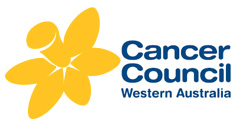Cancer treatment
This information provided by Cancer Council Western Australia (external site).
Your treatment will depend on the type of cancer you have, where it began and whether it has spread to other parts of your body. It will also depend on such things as your general health and the type of treatment you choose.
Most cancers are treated by surgery, radiation therapy and/or chemotherapy (drug treatment). Often more than one of these treatments is used. Other treatments that can work with some cancers are immunotherapy and hormone therapy.
Surgery
Surgery is a common treatment for cancer. It involves removing the cancer as well as surrounding tissue to make sure no part of the cancer is left behind.
Radiotherapy
Radiotherapy is a form of treatment that can control the growth of many types of cancers. Radiotherapy is the use of radiation to kill or injure cancer cells so they cannot keep growing. Radiotherapy may be used before surgery (pre-operative radiotherapy), or after surgery (post-operative radiotherapy) to destroy cancer cells that cannot be removed surgically. In some cases, radiotherapy is used in combination with chemotherapy to treat the cancer.
The aim of radiotherapy can be:
- to cure – many cancers can be completely cured by radiotherapy on its own or when combined with other treatments
- to control cancer growth – when it is not possible to cure a cancer, radiotherapy may be used to keep the cancer under control for some time by making it smaller or stopping it from spreading
- for symptom relief – radiotherapy is often able to relieve distressing cancer symptoms such as pain so you feel as well as possible
- as adjuvant therapy – when radiotherapy is used with another treatment, such as surgery, to improve the chances of cure, it is called adjuvant radiotherapy.
Chemotherapy
Chemotherapy is the use of drugs to treat cancer. It works by destroying or slowing the growth of cancer cells.
Chemotherapy mainly affects fast-growing cells, like cancer cells. There are many different types of chemotherapy drugs. Usually, people have several at the same time but sometimes people have only one drug. Your oncologist will discuss your treatment options with you.
For more information on chemotherapy visit Cancer Council Western Australia (external site).
Hormone therapy
If your cancer cells are the type that respond to hormones, you may be given hormonal therapy to help destroy cancer cells, or any cancer cells that may have spread to other areas of your body. Hormonal therapy may be used in addition to surgery, radiation therapy and chemotherapy.
What other type of treatments are there?
- Immunotherapy helps the body’s immune system to fight cancer cells.
- Adjuvant therapy is when a treatment used to assist your main treatment and is used in addition to the main treatment.
People often have more than one type of treatment one after the other or together. This is called multi-modality treatment. Many cancers can be cured using these treatments, either alone or in combination. When a cure is unlikely, chemotherapy, radiotherapy or other treatments can relieve symptoms and help you feel as well as possible often for long periods of time. It is important to talk with your oncologist, doctor or nurse about any concerns you have before, during and after treatment.
What about complementary therapies?
Complementary therapies, including alternative therapies and bush medicine, can work alongside medical treatments and some have been shown to improve quality of life or reduce pain. There is no evidence that these therapies can cure or prevent cancer.
It is important to remember that some of these therapies have not been tested for side effects, may work against other medical treatments and may be expensive.
Let your doctor know about all complementary therapies you are thinking of using.
More information
More information on cancer treatment is available from
Cancer Council Western Australia (external site).
This information provided by

Acknowledgements
Cancer Council Western Australia
This publication is provided for education and information purposes only. It is not a substitute for professional medical care. Information about a therapy, service, product or treatment does not imply endorsement and is not intended to replace advice from your healthcare professional. Readers should note that over time currency and completeness of the information may change. All users should seek advice from a qualified healthcare professional for a diagnosis and answers to their medical questions.